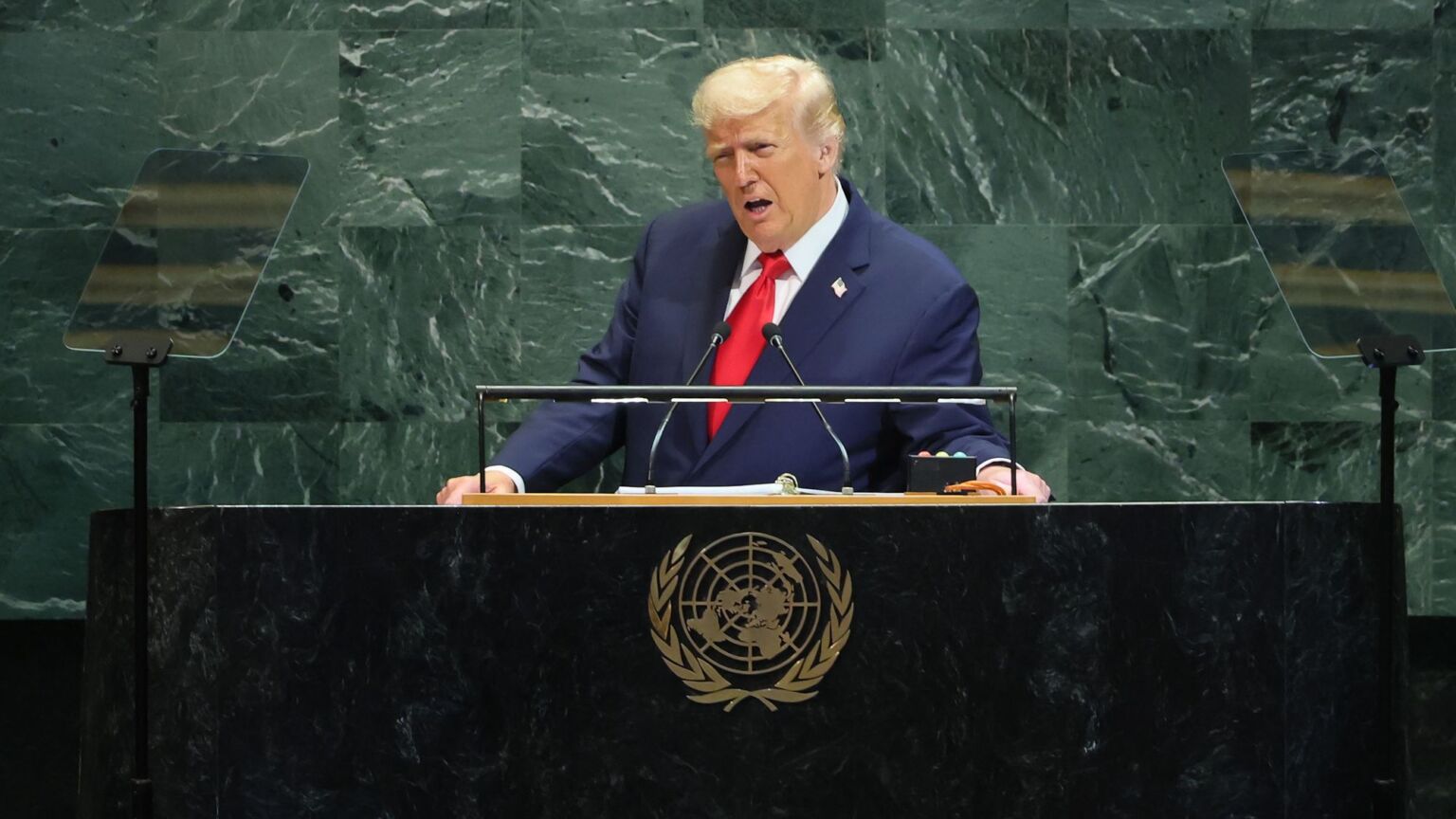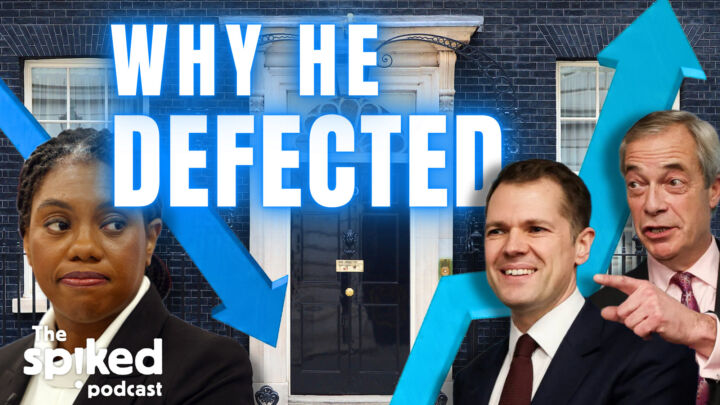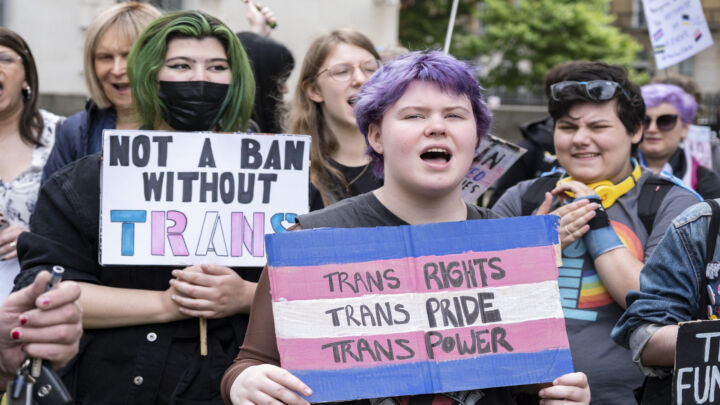The truth about Sharia law in Britain
Islamic law has a far more pernicious influence than our political class will admit.

Want unlimited, ad-free access? Become a spiked supporter.
In an incendiary speech to the United Nations General Assembly last month, Donald Trump claimed that London wants ‘to go to Sharia law’. UK prime minister Keir Starmer called the claim ‘nonsense’ and ‘ridiculous’. But could there be a grain of truth behind the US president’s bluster?
Sharia law is a body of religious rulings rooted in the Koran, believed by Muslims to contain the revelations of Allah, as well as the Hadith and Sunnah, which relay the words and deeds of the Prophet Muhammad. It provides the framework for Islamic civil and political life. Needless to say, nowhere in the UK is governed by Sharia law and there is no major political party calling for it to be. Laws are made by parliament, not religious fiat.
However, there are now at least 85 Sharia councils in the UK. These organisations manage disputes between Muslims and ensure Islamic law is being upheld. These councils have no legal force, but they do have clout among believers. This can give them enormous power within Muslim communities.
The severity of these councils’ injunctions first came to light in 2007, when Channel 4 documentary Undercover Mosque was aired. In it, one imam was recorded explicitly disavowing British law, or ‘the rule of the kafir’ (non-Muslim), as he put it. ‘We have to rule ourselves and we have to rule others’, he said. Other imams were recorded defending child marriages, advocating for violence against Indians and Jews, and praising the deaths of British soldiers in Afghanistan. As Islamic immigration to the UK increased, particularly from Pakistan and Bangladesh, so too has public awareness over the less palatable aspects of Sharia law.
One especially controversial figure is Haitham al-Haddad, an Islamic scholar and longstanding judge at the Islamic Sharia Council, Europe’s first Sharia court, based in Leyton, east London. He is also the chair of the ‘Fatwa Committee’ at the Islamic Council of Europe. An investigation by The Times in 2018 revealed that he has given instructions on how to conduct female genital mutilation and he wants the death penalty for apostasy. He believes that Muslims cannot integrate with Western culture. He has also claimed that Western women who have committed adultery have frequently ‘begged’ him to be taken to an Islamic country, where they could be stoned to death, so as to avoid eternal punishment in hell. According to a BBC report from 2012, Haddad’s Islamic Sharia Council adjudicates as many as 300 disputes a month.
These revelations have set off alarm bells among officialdom. A Home Office report in 2018 urged changes to the Marriage Act to require Muslims to register their marriage as a civil marriage at the same time as they are married under Islamic law. ‘By linking Islamic marriage to civil law it ensures that a greater number of women will have the full protection afforded to them in family law and they will face less discriminatory practices’, the report said. In the same year, crossbench peer Caroline Cox introduced a private member’s bill to ‘protect Muslim women in Britain from Sharia law’, citing the issues of asymmetrical divorce, polygamy and the Islamic justification of ‘honour-based violence’.
Despite these warnings, the problem has only become worse. Indeed, so widespread is the application of Sharia law in the UK that British Muslims can even download an app on their phone that allows for the creation of Islamic wills, where it is customary to give daughters half the inheritance of what a son receives. It also features a drop-down menu allowing men to choose how many wives they have, even though polygamy is illegal in Britain.
The rise of Sharia law is especially problematic for women. It is estimated that more than 60 per cent of Muslim marriages in the UK are unregistered with the British state, with couples instead bound through an Islamic agreement known as a ‘nikah’. This is a deeply misogynistic arrangement – men can leave women whenever and wherever they like, while a woman must seek the agreement of the husband to divorce. As a result, women are often left abandoned or destitute, or trapped in unhappy or violent marriages.
We should not be alarmist, but nor should we dismiss the influence of Sharia law in the UK. A lack of integration means that Sharia councils can, in effect, act as a shadow legal system for many civil matters. This should trouble us as a secular country.
Trump’s claim about Sharia and the UK might have been confused and imprecise. But it was far closer to the truth than Starmer’s blithe dismissal. The UK is not ‘going to’ Sharia law. Sharia law is already here for many people in Britain.
Hannah Baldock is a journalist and researcher on radicalisation and terrorism.
£1 a month for 3 months
You’ve hit your monthly free article limit.
Support spiked and get unlimited access.
Support spiked – £1 a month for 3 months
spiked is funded by readers like you. Only 0.1% of regular readers currently support us. If just 1% did, we could grow our team and step up the fight for free speech and democracy.
Become a spiked supporter and enjoy unlimited, ad-free access, bonus content and exclusive events – while helping to keep independent journalism alive.
———————————————————————————————————————————–
Exclusive January offer: join today for £1 a month for 3 months. Then £5 a month, cancel anytime.
———————————————————————————————————————————–
Monthly support makes the biggest difference. Thank you.








Comments
Want to join the conversation?
Only spiked supporters and patrons, who donate regularly to us, can comment on our articles.